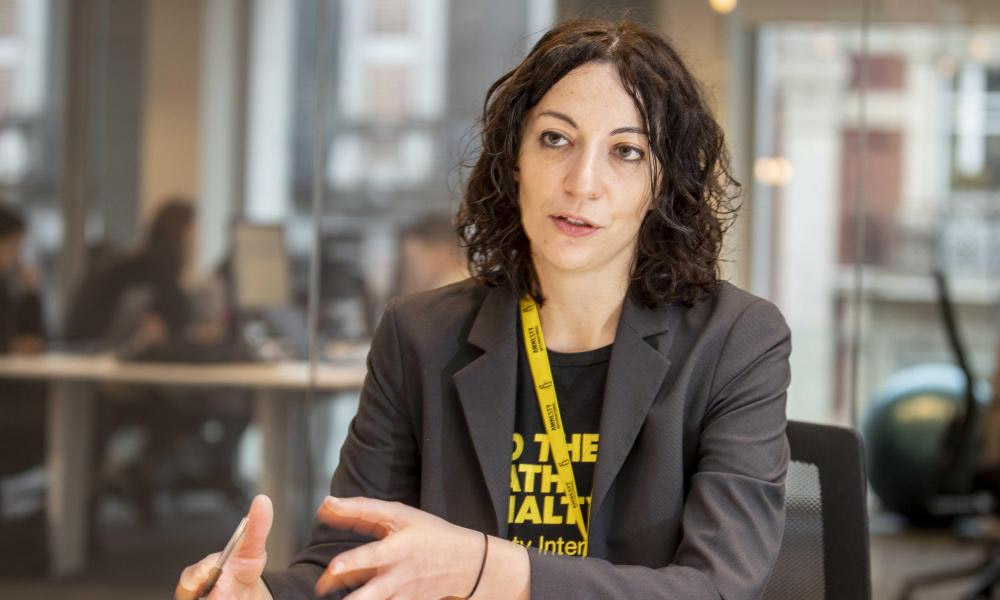Abolishing the death penalty from Malaysia's criminal justice system may help in saving the lives of Malaysian citizens who are on death row abroad, said human rights organisation Amnesty International.
Chiara Sangiorgio, an expert in Amnesty's global death penalty team, told a press conference today that continuing to have capital punishment only weakens Malaysia's position when it comes to saving its citizens from being executed overseas.
"Your nationality can be one of the arbitrary factors (when pleading against the death penalty). If you are a citizen of a country that is abolitionist, if your country is pushing a lot of resources for you and your case, support your families to travel over, support translation, interpretation from the point of arrest, we see a very different outcome.
"That is why we, and my colleagues in Amnesty International Malaysia, are calling on the Malaysian government to do its utmost best to support Malaysian nationals on death row in Singapore," she said.
Sangiorgio was speaking at a press conference organised by Amnesty International Malaysia, where they called the cabinet to make a decision soon towards abolishing the death penalty in the country.

Last week, Malaysia-based NGO Lawyers for Liberty called for the Singapore government to halt the execution of Malaysian citizen Pausi Jefridin, who suffers from intellectual disability. The 33-year-old was sentenced to death in 2011 for trafficking 42.72g of diamorphine into Singapore.
Following pleas from many quarters, Singapore President Halimah Yacob had on Feb 17 ordered for the execution to be temporarily halted.
According to Sangiorgio, while there are significant concerns over the death penalty in Singapore, Malaysia should also reflect on itself for having a mandatory death penalty against drug trafficking offences.
"(This) puts Malaysia itself in a very weakened position when it comes to negotiating with Singapore, and another reason why Malaysia should take action now and abolish the death penalty.
"If the death penalty is wrong over there, the death penalty is very wrong here," she said.
Lawyer Abdul Rashid Ismail, who has represented several death row inmates, said that the previous government's decision to impose a moratorium on death penalties had allowed it to now ask other countries not to execute Malaysians there.
He said abolishing the death penalty in Malaysia will also have an impact on Asean.
"If you recall, now we have taken the position and have a moratorium on execution. This is why Malaysia is now able to write to other countries to ask our citizens not to be executed. This is why it is important.
"Although it is just a baby step, but in the long term, it will have a significant impact in abolishing the death penalty in Asean," he said.
Opportunity for bold, needed changes
Meanwhile, Amnesty International Malaysia executive director Katrina Maliamauv called for the cabinet to discuss a review of the death penalty and its abolishment in their meeting this Wednesday.
She said the de facto Law Minister Wan Junaidi Tuanku Jaafar in January had promised that the cabinet would be reviewing proposals by the Special Committee to Study Alternative Sentences to the Mandatory Death Penalty by the end of February.
Cabinet meetings are usually held every Wednesday, which makes this Feb 23 the last cabinet meeting for this month.
"We are, therefore, at a significant point in our country's history, one that provides us with big opportunity to make bold and needed changes, and provide us with an opportunity to abolish the death penalty," she said.
T Shamala, an activist who is assisting the families of 30 death row prisoners, said they are hopeful that Wan Junaidi will bring a letter pleading on behalf of the families to the cabinet meeting.
She said the letter signed by all the families was sent to the late Liew Vui Keong when he was the de facto law minister, and now Wan Junaidi has promised to bring it into consideration.
"We hope the government will consider. It is unfair because the death row inmates have already been punished by years of jail.
"We plead to the government to consider all our letters and plead for amnesty from the families," she said. - Mkini




No comments:
Post a Comment
Note: Only a member of this blog may post a comment.